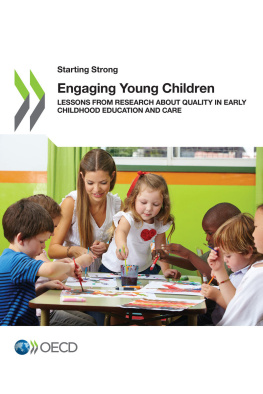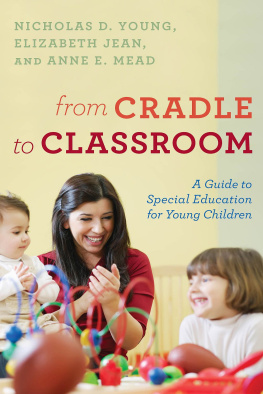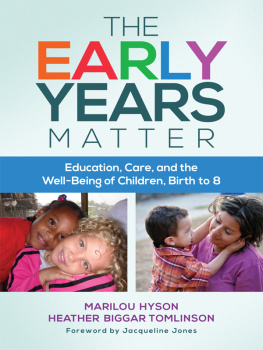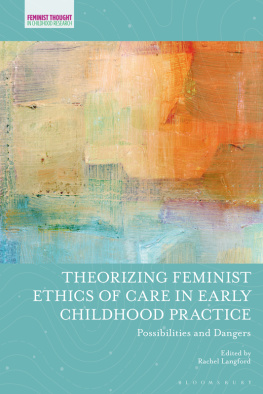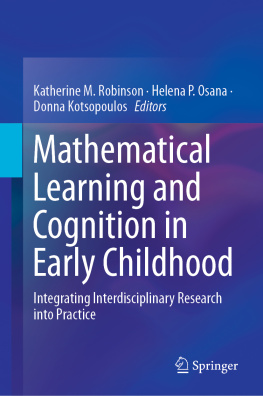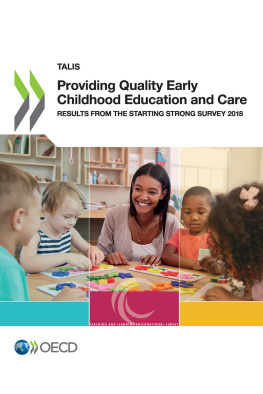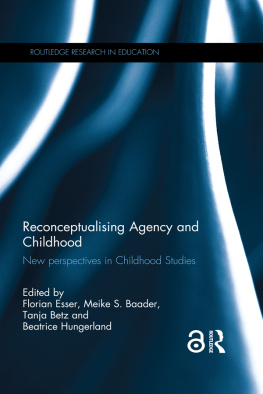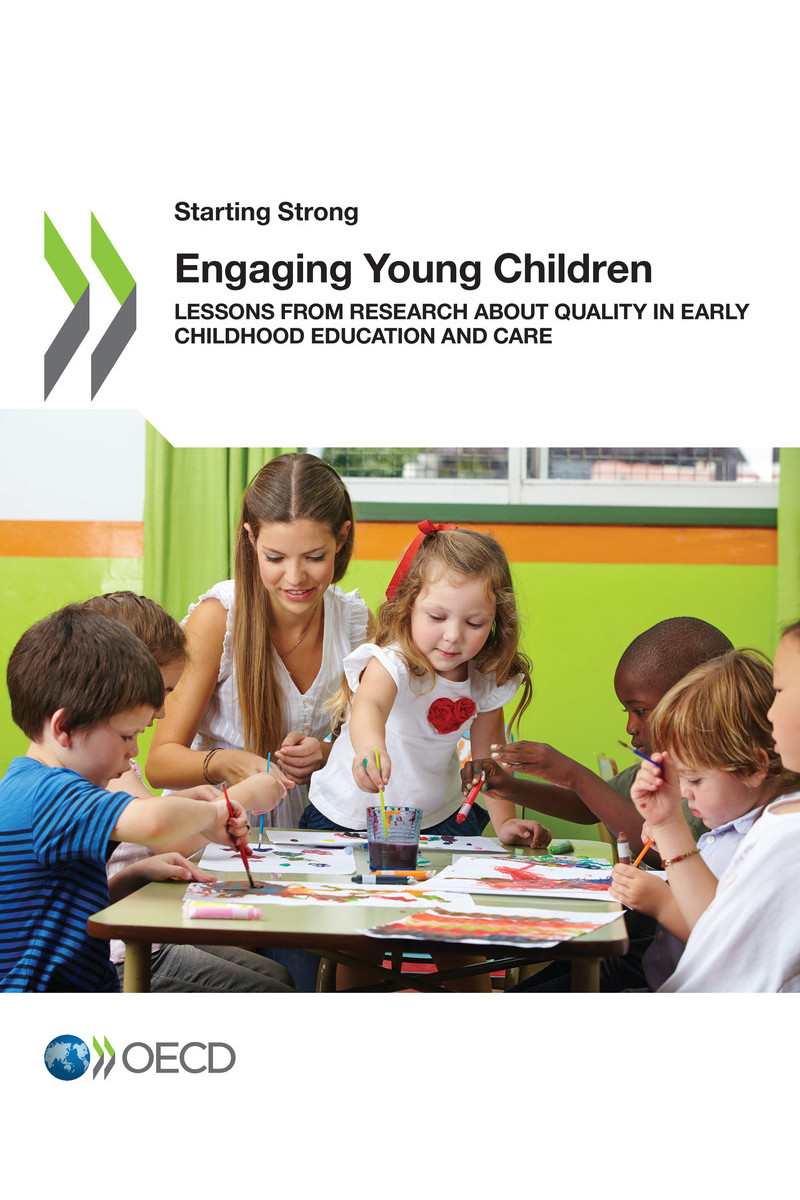Metadata, Legal and Rights
ISBN: 978-92-64-08513-8 (print) - 978-92-64-08514-5 (pdf) - 978-92-64-29837-8 (HTML) - 978-92-64-29836-1 (epub)
DOI: http://dx.doi.org/10.1787/9789264085145-en
Series: Starting Strong
ISSN: 2521-6023 (print) - 2521-6031 (online)
This work is published under the responsibility of the Secretary-General of the OECD. The opinions expressed and arguments employed herein do not necessarily reflect the official views of OECD member countries.
This document, as well as any data and any map included herein, are without prejudice to the status of or sovereignty over any territory, to the delimitation of international frontiers and boundaries and to the name of any territory, city or area.
The statistical data for Israel are supplied by and under the responsibility of the relevant Israeli authorities. The use of such data by the OECD is without prejudice to the status of the Golan Heights, East Jerusalem and Israeli settlements in the West Bank under the terms of international law.
Photo credits: Cover Shutterstock/Robert Kneschke.
Corrigenda to OECD publications may be found on line at: www.oecd.org/publishing/corrigenda .
OECD 2018
You can copy, download or print OECD content for your own use, and you can include excerpts from OECD publications, databases and multimedia products in your own documents, presentations, blogs, websites and teaching materials, provided that suitable acknowledgement of OECD as source and copyright owner is given. All requests for public or commercial use and translation rights should be submitted to .
Foreword
The first years of life lay the foundations for an individuals future skills development and learning. As the Starting Strong reports of the Organisation for Economic Development and Co-operation (OECD) and other research has demonstrated, investments in high-quality early childhood education and care pay dividends in terms of childrens short- and long-term learning and development.
Many OECD countries recognise this and have increased public spending on ECEC, particularly to expand its access. In consequence, universal or quasi-universal access to at least one year of pre-primary education is now a reality in most countries, which constitutes significant progress towards the Sustainable Development Goals education targets. A growing body of research suggests that only high-quality early childhood education and care is associated with childrens development and learning, with especially strong evidence in the case of disadvantaged children. But raising quality can be a daunting task when public budgets are being tightened.
As a result, policy makers face complex decisions in spending, evaluating trade-offs between structural investments and investments that improve the quality of the interactions taking place in early childhood settings, for instance between staff and children. The nature of these demands imply that policy makers need to be informed of the evidence base and then examine how a variety of policy options apply to their context or jurisdiction.
This research report summarises the key findings from two background studies which were commissioned as part of initial desk-based research for the new OECD project Policy Review: Quality beyond Regulations in Early Childhood Education and Care (ECEC), focusing in particular on process quality, to be conducted in 2017-2020. The report aims at supporting readers to understand different dimensions of quality in ECEC and the complexity of the provision of education and care for the early years. It also highlights significant quality issues in existing research and avenues for further research.
One of the two background studies is a literature review authored by Pauline Slot (University of Utrecht). It examines how structural and process aspects of ECEC quality are interrelated in the provisions of ECEC for children from birth to age 5, including family daycare. The review has an explicit cross-national focus, and includes the grey literature (i.e. national and international reports, unpublished studies, recent evidence).
To complement the literature review, a meta-analysis was authored by Antje von Suchodoletz (New York University Abu Dhabi), D. Susie Lee, Bharathy Premachandra and Hirokazu Yoshikawa (New York University). It explores how aspects of quality are associated with child development and learning. The meta-analysis also has an explicit cross-national focus, but was limited to centre-based settings for children aged 3 to 5. Both background studies were designed, implemented and concluded in 2017.
Based on the two research studies (literature review and meta-analysis), this report was written by the OECD ECEC team: Clara Barata (lead author), with contributions from Victoria Liberatore (e.g. introductions, OECD data charts, research assistance), Arno Engel and Miho Taguma (e.g. messaging, Chapters 1 and 5). Project support was provided by Mernie Graziotin. Guillaume Bousquet finalised the meta-analysis charts with guidance from ric Charbonnier. Victoria Elliott provided the editorial support. Sophie Limoges and Rachel Linden provided support to the publication process.
Members of the OECD Network on Early Childhood Education and Care provided feedback on draft versions of the report, and helped guide the development of the research and publication (see Annex A).
Co-ordination was initially provided by ric Charbonnier, and later Clara Barata, with overall guidance and support by Yuri Belfali, Miho Taguma and Arno Engel. Final review was provided by Andreas Schleicher, Nomie Le Donn, Elizabeth Shuey and Hannah Ulferts. The report also benefitted from conceptual discussions on process quality with the Questionnaire Expert Group and Consortium of the OECD Starting Strong Teaching and Learning International Survey
This document has been co-funded by the European Union. The opinions expressed and arguments employed herein do not necessarily reflect the official views of the European Union, OECD member countries or OECD ECEC Network members. This work has also been produced with the financial support of the Jacobs Foundation Switzerland.
Information on the OECDs work on Early Childhood Education and Care is available at: http://www.oecd.org/education/school/earlychildhoodeducationandcare.htm .
List of abbreviations
CARE
Curriculum and Quality Analysis and Impact Review of European Early Childhood Education and Care
CIS
Caregiver Interaction Scales
CLASS
Classroom Assessment Scoring System
EACEA
Education, Audio-visual and Culture Executive Agency
ECE
Early childhood education
ECEC
Early childhood education and care

